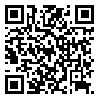1. Charach A, McLennan JD, Bélanger SA, Nixon MK. Screening for disruptive behaviour problems in preschool children in primary health care settings. J Can Acad Child Adolesc Psychiatry. 2017;26(3):172–8.
2. Stormshak EA, Bierman KL, McMahon RJ, Lengua LJ. Parenting practices and child disruptive behavior problems in early elementary school. J Clin Child Adolesc Psychol. 2000;29(1):17–29. [
DOI]
3. Mohammadi M, Vaisi Raiegani AA, Jalali R, Ghobadi A, Abbasi P. Prevalence of behavioral disorders in Iranian children. J Mazandaran Univ Med Sci. 2019;28(169):181–91. [Persian] [
Article]
4. Wang J, Yang Y, Tang Y, Wu M, Jiang S, Zou H. Longitudinal links among parent-child attachment, emotion parenting, and problem behaviors of preadolescents. Child Youth Serv Rev. 2021;121:105797. [
DOI]
5. Abbasi M, Neshatdoost HT. Effectiveness of parent-child interaction therapy on reduction of symptoms in oppositional defiant disorder. J Clinical Psychology. 2013;5(3):59–6. [Persian] [
Article]
6. Brinkmeyer MY, Eyberg SM. Parent-child interaction therapy for oppositional children. In: Kazdin AE, Weisz JR; editors. Evidence-based psychotherapies for children and adolescent. New York: Guilford Press; 2003.
7. Azizi A, Karimipoor BA, Rahmani S, Veisi F. Comparing the efficacy of child-parent relationship therapy (CPRT) and family-focused therapy (FFT) on function of families with children with oppositional defiant disorder (ODD). J Child Ment Health. 2016;3(2):9–20. [
Article]
8. Murray KW, Dwyer KM, Rubin KH, Knighton-Wisor S, Booth-LaForce C. Parent–child relationships, parental psychological control, and aggression: maternal and paternal relationships. J Youth Adolesc. 2014;43(8):1361–73. [
DOI]
9. Mahmoudi N, Mousavi R, Ghobari-Bonab B. Effectiveness of parent-child relationship-oriented group interventions on symptoms reduction among 6–11 years old children with attention-deficit/hyperactivity disorder. Empowering Exceptional Children. 2018;9(2):65–74. [Persian] [
Article]
10. Mirzaei Koutnaei F, Shakerinia I, Asghari F. The associations between parent-child relationship and aggressive behavior among students. J Child Ment Health. 2016;2(4):21–34. [
Article]
11. Tambelli R, Laghi F, Odorisio F, Notari V. Attachment relationships and internalizing and externalizing problems among Italian adolescents. Child Youth Serv Rev. 2012;34(8):1465–71. [
DOI]
12. Sullivan JM. Parents of children with high-functioning autism: experiences in child parent relationship therapy (CPRT) [PhD dissertation]. [Denton, Texas]: University of North Texas Libraries; 2011.
13. Chorot P, Valiente RM, Magaz AM, Santed MA, Sandin B. Perceived parental child rearing and attachment as predictors of anxiety and depressive disorder symptoms in children: the mediational role of attachment. Psychiatry Res. 2017;253:287–95. [
DOI]
14. Ozturk Y, Moretti M, Barone L. Addressing parental stress and adolescents' behavioral problems through an attachment-based program: an intervention study. International Journal of Psychology and Psychological Therapy. 2019;19(1):89-100.
15. Galle Girian S, Deireh E. Comparison of the effect of metacognitive therapy and attachment-based therapy on externalizing problems in aggressive children. J Child Ment Health. 2017;4(1):24–34. [Persian] [
Article]
16. VanVoorhis CRW, Morgan BL. Understanding power and rules of thumb for determining sample sizes. Tutor Quant Methods Psychol. 2007;3(2):43-50. [
DOI]
17. Wei M, Russell DW, Mallinckrodt B, Vogel DL. The Experiences in Close Relationship Scale (ECR)-short form: reliability, validity, and factor structure. J Pers Assess. 2007;88(2):187–204. [
DOI]
18. Achenbach TM, Rescorla LA. Multicultural understanding of child and adolescent psychopathology: implications for mental health assessment. New York: Guilford Press; 2007.
19. Panaghi L, Maleki G, Zabihzadeh A, Poshtmashhadi M, Soltaninezhad Z. Validity, reliability, and factor analysis of Experiences in Close Relationship (ECR) Scale. Iranian Journal of Psychiatry and Clinical Psychology. 2014;19(4):305–13.
20. Minaee A. Adaptation and standardization of child behavior checklist, youth self-report, and teacher's report forms. Journal of Exceptional Children. 2006;6(1):529–58. [Persian] [
Article]
21. Dozier M, Tyrrell C. The role of attachment in therapeutic relationships. In: Simpson JA, Rholes WS; editors. Attachment theory and close relationships. New York: The Guilford Press; 1998. p. 221–48.
22. McNeil CB, Hembree-Kigin TL, Anhalt K. Parent-child interaction therapy (issues in clinical child psychology). Second edition. New York: Springer; 2011.
23. Shawler PM, Elizabeth Bard M, Taylor EK, Wilsie C, Funderburk B, Silovsky JF. Parent-child interaction therapy and young children with problematic sexual behavior: a conceptual overview and treatment considerations. Child Youth Serv Rev. 2018;84:206–14. [
DOI]
24. Schilling S, French B, Berkowitz SJ, Dougherty SL, Scribano PV, Wood JN. Child–adult relationship enhancement in primary care (PriCARE): a randomized trial of a parent training for child behavior problems. Acad Pediatr. 2017;17(1):53–60. [
DOI]
25. Martel MM. Theories of oppositional defiant disorder. In: Martel MM; editor. The clinician's guide to oppositional defiant disorder: symptoms, assessment, and treatment. First edition. Cambridge, US: Academic Press; 2019.
26. Chris Fraley R, Hudson NW. The development of attachment styles. In: Specht J; editor. Personality development across the lifespan. New York: Academic Press; 2017. p. 275–92. [
DOI]
27. Cooke JE, Racine N, Plamondon A, Tough S, Madigan S. Maternal adverse childhood experiences, attachment style, and mental health: pathways of transmission to child behavior problems. Child Abuse Negl. 2019;93:27–37. [
DOI]
28. Wright B, Edginton E. Evidence-based parenting interventions to promote secure attachment: findings from a systematic review and meta-analysis. Glob Pediatr Health. 2016;3:1-14.





